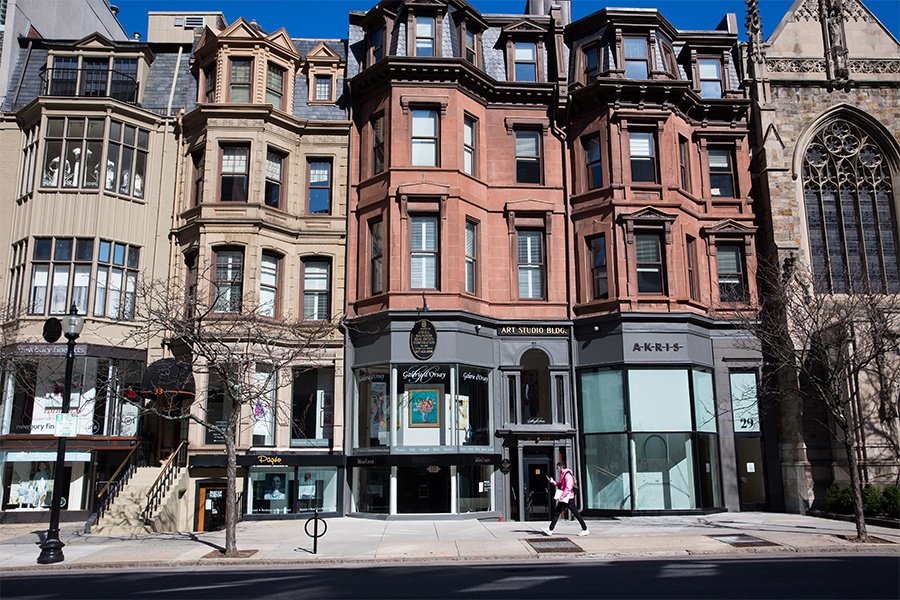Will Boston’s Indie Boutiques and Salons Survive the Shutdown?
Already struggling with the high cost of doing business here, many owners are wondering what’s next for the city’s retail community.

Photo by Scott Eisen/Getty Images
If you’re anything like me, you’ve probably been noticing the steady drip of emails from national retailers touting what you need to wear to “WFH.” Like most of us, they’re learning how to adapt their business models and market to people who want to look half-decent for their Zoom and Slack video calls. But while we’re browsing digitally, we shouldn’t forget the small brick-and-mortar businesses around the region that are dealing with furloughs, closures, and an uncertain future. For many of Boston’s indie boutique and salon owners who have already been struggling to make ends meet, the COVID-19 pandemic may, in the words of Lunette Optic owner Ted Mogtader, “just put the final nail in our coffin.”
Even in the best of times, it takes a lot of grit (and a certain amount of masochism) for these high-touch businesses to stay the course. The owners typically have little to no cash reserves, work long hours, and struggle to compete with larger retailers that can afford massive investments in e-commerce. And that’s to say nothing of the sky-high cost of operating in a city like Boston: “Rent is already expensive without corona restrictions,” says All Too Human owner Jessica Knez, who believes her Clarendon Street location is critical to maintaining an elevated presence and attracting locals, international visitors, and students. Now, with no new sales from in-person customers and even decreased traffic to her online shop, “this is a difficult time.”
Sari Brown echoes that sentiment. She closed the doors of her jewel-box Newton Highlands store, LuxCouture, two weeks ago along with everyone else, figuring at the time that it would be temporary. “It’s going as well as I think it can,” she told me last week. “I wake up every day with a plan—you have to have a plan. I get up, shower, work out, and write letters to our vendors. It’s business as usual even though I am home.” Gretchen Monahan, the brains behind the eponymous spa and fashion empire GrettaCole and GrettaLuxe, also found her world turned upside down two weeks ago just as she was celebrating her company’s 25th anniversary. Now, she says, her team of 130 employees are “working every angle”—leveraging community connections, mining contact lists, and drawing on their collective creativity to figure out a way forward.
And figuring out a way forward they are: Remote fashion styling, curbside pickups of new spring merchandise, porch deliveries of beauty products and birthday gifts, and home hair-coloring kits are all ways these small businesses are rewriting the marketing playbook. Monahan, for her part, launched the #salonstrong campaign on Instagram Stories last week encouraging people to buy gift cards. But the challenge with any outreach, says LuxCouture’s Brown, is that people are in total psychological distress. “I am marketing to the cozy side of my customer’s brain,” she says—and “even adding mini bottles of Purell as a gift with purchase [online].”
While the federal government’s stimulus package is supposed to help smaller businesses that pledge not to lay off their employees, many local retailers believe that the $2 trillion deal is insufficient. “Just do the math,” says Lunette Optic co-owner Michelle Mogtader. “How many small businesses are actually going to get something?” Let’s hope they do. Boston’s neighborhood shops are places where everybody not only knows your name but also your birthday, your favorite designers, and your entire life story. They deliver after-hours, check on you when you’re sick, and think of you on their seasonal buying expeditions. And their success is inextricably linked to their community’s success. As Ted Mogtader says, “We are all connected. The money stays here; it doesn’t leave.”


